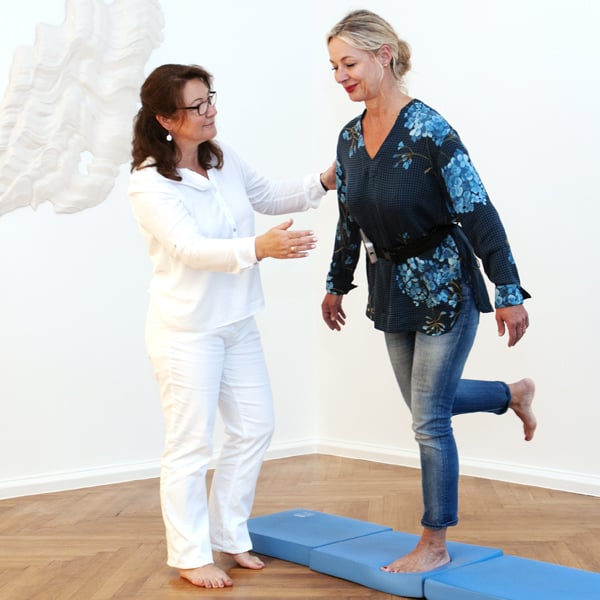
Vertigo
Disorders of the vestibular system and age-related changes can give rise to symptoms of dizziness.
Vertigo often produces a general sensation of insecurity, which can be very troubling and in some cases goes as far as symptoms of anxiety. In addition, mobility is often significantly diminished in cases of chronic dizziness.
If there are pronounced symptoms of dizziness, there is a risk of falling which can have serious consequences especially in old age.
IN CHRONIC VERTIGO
The body learns to cope with dizziness by getting used to the new condition (habituation). This habituation can be trained by means of special exercises. Habituation takes place most effectively if the body is subjected to an auxiliary stimulus (neurofeedback principle) from a device during the exercises.
NEUROFEEDBACK TRAINING
The concept of vibrotactile neurofeedback training consists of guaranteeing normal posture and balance even when there is diminished vestibular information. The missing information is passed to the patient by vibration stimulators. This results in an automatic correction of posture.

PREVENTING FALLS
Repeated training forms vestibular memory as a protein in the brain, resulting in much greater physical stability and lower risk of falling. International studies show that this therapy produces significantly better physical stability.
Related links
DIAGNOSIS
- balance tests
- neurootological examinations
- investigation of the risk of falling (neurofeedback)
- BERA
- balance diagnosis
- calorific balance testing
- VEMP measurement
- determination of the risk of falling (VertiGuard®)
- Hallpike manoeuvre
THERAPY
- neurofeedback balance training
- treatment of benign paroxysmal positional vertigo
- homoeopathy
- regulatory medicine
Stern Edition 01.2020
„Hirschhausens Gesund Leben“
Topic: ” Vertigo – What’s behind it?”
with vertigo expert Dr. Kathrin Ernst, ENT physician from Berlin.
Program from 18.10.2017








